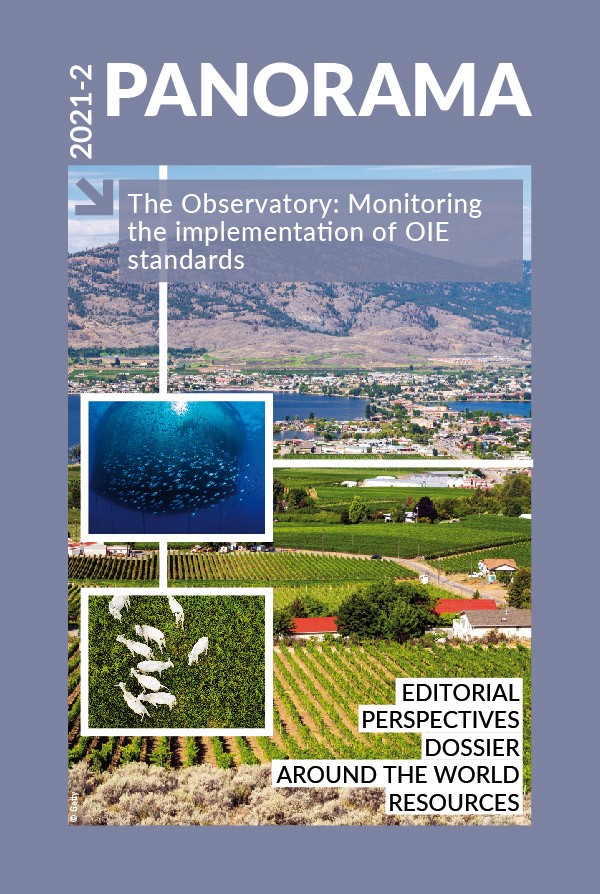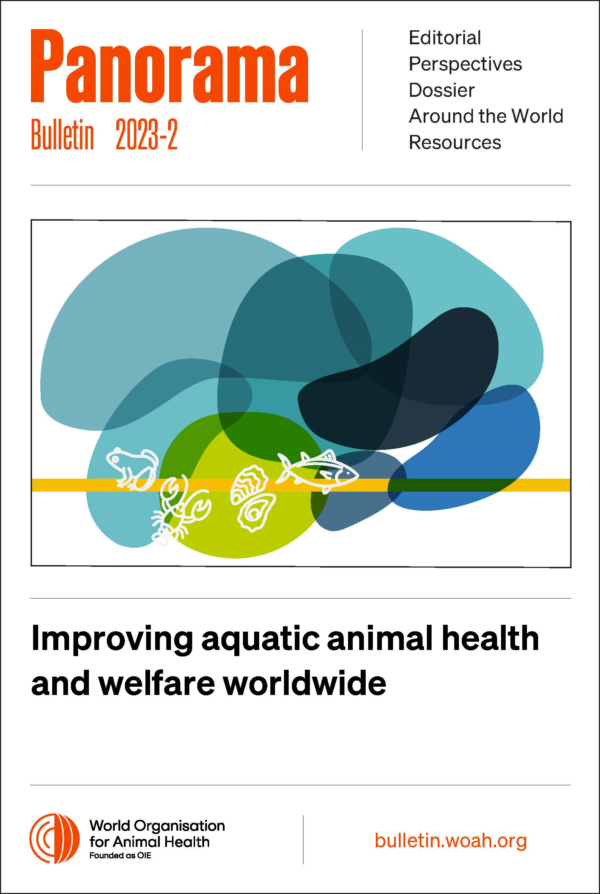Perspectives Posted on 2021-12-20 15:09:28
Opinions and strategies
Learning from the experience of other international organisations
Keywords
Authors
Céline Pinsard(1), Lorraine Bourgasser(1), Géraldine Coronado Pertriaux(1), Karine Bertholon(1), Gilles Goulu(1) & Elisa Rapenne(1)
(1) Groupe d’étude des politiques publiques (GEPP), École nationale des services vétérinaires – France vétérinaire international (ENSV-FVI) VetAgro Sup, Marcy-l’Étoile, France.
The designations and denominations employed and the presentation of the material in this article do not imply the expression of any opinion whatsoever on the part of the OIE concerning the legal status of any country, territory, city or area or of its authorities, or concerning the delimitation of its frontiers and boundaries.
The views expressed in this article are solely the responsibility of the author(s). The mention of specific companies or products of manufacturers, whether or not these have been patented, does not imply that these have been endorsed or recommended by the OIE in preference to others of a similar nature that are not mentioned.
The International Organization for Standardization (ISO) systematically reviews its standards at least once every five years. National standards bodies (NSBs) are required to answer a survey and the results are then computerised and processed in a dedicated database. At the end of this process, the relevance of the standard is discussed, and it may be amended or even withdrawn [1].
The International Labour Organization (ILO) has had a Standards Review Mechanism (SRM) in operation since 2015, implemented by a tripartite working group of governments, employers and workers. The group meets once a year and reviews the different standards based on a thematic approach, assigning their status as: ‘up-to-date’, ‘in need of revision’ or ‘outdated’. The group then provides recommendations, including deadlines for follow-up action.
The Secretariat of the International Plant Protection Convention (IPPC) also has a mechanism, called the Implementation Review and Support System (IRRS), which takes place every three years. It has a dual function: to identify obstacles to the implementation of standards and to strengthen capacities [2].
Although the OIE Observatory is only in the pilot phase, it is already attracting considerable interest from other international organisations. They are closely monitoring how it evolves in terms of function and governance, aspects that are crucial for the effectiveness of its actions. A similar French initiative within the Codex Alimentarius, presented at the 32nd Session of the Codex Committee on General Principles (CCGP32), is evidence of this interest.
|
You may also be interested in the following articles included in this issue of Panorama:
|
https://doi.org/10.20506/bull.2021.2.3283
References
- International Organization for Standardization (ISO) (2019). – Guidance on the systematic review process in ISO.
- International Plant Protection Convention (IPPC) (2013). – Implementation Review & Support System (IRSS).












